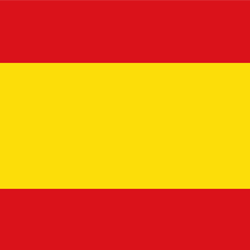Normally the cost of property differs greatly from one nation to the next, but with the Republic of Ireland being literally just over the border from the UK, how do its property prices compare?
We’ve gathered some statistics from Numbeo to compare differences in price between three of the UK’s major cities with three of Ireland’s. After that, we looked at the differences to help you put the prices in perspective!
Average rent for 1 bedroom apartment in city centre:
UK |
Ireland |
||
| London | £1,608 | Dublin | £1,337 |
| Cardiff | £708 | Galway | £785 |
| Edinburgh | £750 | Cork | £899 |
While British cities are known for being expensive to live in, at first glance it seems like the average in Irish cities is even pricier. Unsurprisingly, London’s city centre takes the biscuit, but all three Irish cities have more expensive city centres than Cardiff or Edinburgh.
Average rent for 1 bedroom apartment outside city centre:
UK |
Ireland |
||
| London | £1,162 | Dublin | £1,115 |
| Cardiff | £513 | Galway | £608 |
| Edinburgh | £603 | Cork | £899 |
By far the biggest difference between the city centre and the rest of the city in terms of pricing is London, but both Cardiff and Edinburgh are quite a bit cheaper away from the centre. The difference in price between London and Dublin gets a lot smaller too, but Dublin is still the cheaper of the capitals.
Purchase price per m2 for apartment in city centre:
UK |
Ireland |
||
| London | £13,028 | Dublin | £5,204 |
| Cardiff | £3,250 | Galway | £2,293 |
| Edinburgh | £3,500 | Cork | £2,294 |
Compared to renting, purchase prices are a different story altogether. While renting appeared to be pricier in Britain’s cities, buying property is generally cheaper in Ireland.
London is pricier than all the other listed cities by quite a significant margin – owning property in the heart of the UK’s capital isn’t for those short of cash!
Purchase price per m2 for apartment outside city centre:
UK |
Ireland |
||
| London | £7,102 | Dublin | £3,592 |
| Cardiff | £2,350 | Galway | £1,779 |
| Edinburgh | £2,492 | Cork | £1,543 |
Even outside the city centre, London’s purchase prices are well above those for property in other city centres. Looking to the cheapest option however, property prices in Cork are more than twice the cost of renting – definitely the smallest difference between rent and purchase prices on this list.
Average monthly net salary (after tax):
UK |
Ireland |
||
| London | £2,438 | Dublin | £2,027 |
| Cardiff | £1,689 | Galway | £1,661 |
| Edinburgh | £1,917 | Cork | £2,022 |
This factor can actually make quite a big difference. If a city has higher living costs but you earn more money there then you could end up with more disposable income.
London’s average salary is the highest here, but not by as significant an amount as its property costs. Salaries in Cork, on the other hand, are very high for a city that isn’t a capital.
Monthly mortgage costs as a proportion of income:
UK |
Ireland |
||
| London | 139% | Dublin | 77% |
| Cardiff | 55% | Galway | 46% |
| Edinburgh | 51% | Cork | 34% |
Looking at the figures above, mortgage costs in London are higher than the city’s average income, whereas a home loan in Cork would be far more manageable.
These figures generally indicate that while Ireland’s prices are pretty close to Britain’s, there are some surprising differences.
And across the UK and Ireland as a whole?
Average rent for 1 bedroom apartment in city centre:
UK |
£745 |
Ireland |
£1,092 |
Average rent for 1 bedroom apartment outside city centre:
UK |
£593 |
Ireland |
£921 |
Purchase price per m2 for apartment in city centre:
UK |
£3,756 |
Ireland |
£3,709 |
Purchase price per m2 for apartment outside city centre:
UK |
£2,675 |
Ireland |
£2,548 |
Average monthly net salary (after tax):
UK |
£1,808 |
Ireland |
£1,928 |
Pulling it all together, Ireland’s rental prices are definitely higher than in the UK, while the purchase price of property isn’t actually all that different. However, average wages are higher and that accounts for a lot! If you’ve been thinking about looking into purchasing property and taking out a mortgage rather than renting, considering Ireland would likely leave you with more disposable income than you’d get in the UK.
Hopefully with this overview as a starting point, you’ll have a better idea of how the UK and Ireland’s housing markets differ in terms of affordability.









